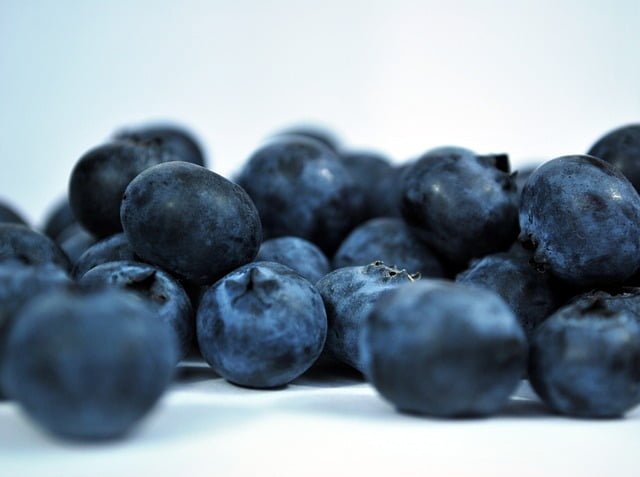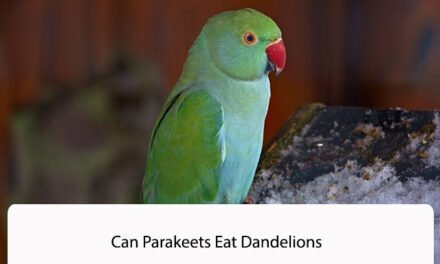Parakeets are known for their love of fruits and vegetables, and blackberries are no exception. These small, sweet-tasting fruits are a great source of vitamins and minerals, making them a healthy addition to any parakeet’s diet. But can parakeets eat blackberries? The answer is yes, they can!
Blackberries are a great source of vitamin C, fiber, and antioxidants, all of which are important for a parakeet’s health. They also contain small amounts of other vitamins and minerals, including vitamin K, vitamin E, and manganese. However, it is important to note that blackberries should only be given to parakeets in moderation, as too much fruit can upset their digestive system.
When feeding blackberries to your parakeet, it is important to wash them thoroughly and remove any stems or leaves. You can offer them whole or cut into small pieces, and it is best to introduce them gradually to your parakeet’s diet to avoid any potential digestive issues. With proper preparation and moderation, blackberries can be a healthy and tasty treat for your feathered friend.

Understanding Parakeets’ Dietary Needs
When it comes to feeding our parakeets, it is important to understand their dietary needs to keep them healthy and happy. Parakeets are omnivores, which means they eat both plants and insects. Their diet should consist of a variety of fresh fruits, vegetables, and grains, as well as a source of protein.
Parakeets need a balanced diet that is rich in vitamins and minerals. They require a high amount of vitamin A, which is essential for their vision and overall health. Feeding them foods that are high in vitamin A, such as carrots, sweet potatoes, and leafy greens, can help ensure they are getting enough of this important nutrient.
In addition to vitamin A, parakeets also need a good source of calcium and protein. Calcium is important for their bone health, while protein is essential for their muscle development and overall growth. Foods that are high in calcium include leafy greens, broccoli, and fortified cereals, while good sources of protein include cooked eggs, lean meats, and legumes.
It is important to note that parakeets have a high metabolism and require frequent meals throughout the day. Providing them with fresh food and water on a daily basis is crucial to their health and well-being. It is also important to avoid feeding them foods that are high in fat, sugar, or salt, as these can be harmful to their health.
Overall, understanding parakeets’ dietary needs is essential for providing them with a healthy and balanced diet. By incorporating a variety of fresh fruits, vegetables, and grains, as well as a source of protein, we can help ensure our parakeets are getting the nutrients they need to thrive.
Incorporating Blackberries into Parakeets’ Diet
When it comes to feeding our feathered friends, it’s important to offer them a varied and nutritious diet. While seeds and pellets are the mainstay of a parakeet’s diet, incorporating fresh fruits and vegetables can provide additional nutrients and enrichment. In this section, we’ll explore whether blackberries are a safe and healthy option for parakeets.
Benefits of Blackberries
Blackberries are a good source of vitamins C and K, fiber, and antioxidants. These nutrients can help support a parakeet’s immune system, digestion, and overall health. Additionally, the texture of blackberries can provide mental and physical stimulation for parakeets as they peck and nibble at the fruit.
Potential Risks and Precautions
While blackberries can be a healthy addition to a parakeet’s diet, there are a few things to keep in mind. First, blackberries should be offered in moderation as they are high in natural sugars. Too much fruit can lead to weight gain and other health issues. Second, be sure to thoroughly wash blackberries before offering them to your parakeet to remove any pesticides or other contaminants. Finally, be aware that some parakeets may have allergies or sensitivities to certain fruits, so it’s important to introduce new foods slowly and monitor your bird for any adverse reactions.
In summary, blackberries can be a nutritious and enjoyable addition to a parakeet’s diet when offered in moderation and with proper precautions. As with any new food, it’s important to introduce blackberries slowly and monitor your bird’s reaction.
How to Feed Blackberries to Parakeets
Preparation Methods
When feeding blackberries to parakeets, it is important to ensure that they are properly prepared. Here are some preparation methods to follow:
- Wash the blackberries thoroughly with water to remove any dirt or residue.
- Cut the blackberries into small pieces to make it easier for the parakeet to eat.
- Remove any seeds from the blackberries, as they can be harmful to the parakeet’s digestive system.
Frequency and Portion Size
While blackberries are a healthy treat for parakeets, it is important to feed them in moderation. Here are some guidelines to follow:
- Feed blackberries to your parakeet as a treat, not as a regular part of their diet.
- Offer blackberries once or twice a week as a special treat.
- Limit the portion size to a few small pieces per feeding.
Remember, overfeeding blackberries or any other treat can lead to health problems for your parakeet. Always consult with your veterinarian if you have any concerns about your parakeet’s diet.

Alternatives to Blackberries for Parakeets
As we mentioned earlier, blackberries are a great source of vitamins and antioxidants for parakeets. However, if your pet bird is not a fan of blackberries or if they are not readily available, there are other fruits and vegetables that you can offer to provide similar nutritional benefits.
Here are some alternatives to blackberries that your parakeet may enjoy:
Blueberries
Blueberries are another excellent source of antioxidants and vitamins that are essential for a parakeet’s health. They are also low in sugar, making them a great choice for birds on a low-sugar diet. You can offer blueberries fresh or frozen, and they can be served whole or mashed.
Raspberries
Raspberries are a tasty and nutritious treat for parakeets. They are rich in antioxidants and vitamins, and they also contain fiber, which can help with digestion. Raspberries can be offered fresh or frozen, and they can be served whole or mashed.
Strawberries
Strawberries are another fruit that is high in vitamins and antioxidants. They are also low in sugar, making them a great choice for birds on a low-sugar diet. You can offer strawberries fresh or frozen, and they can be served whole or mashed.
Kale
Kale is a leafy green vegetable that is packed with vitamins and minerals that are essential for a parakeet’s health. It is also low in calories and high in fiber, making it a great choice for birds on a weight-management diet. Kale can be served raw or cooked, and it can be chopped or shredded for easier consumption.
Carrots
Carrots are a great source of vitamins and minerals that are essential for a parakeet’s health. They are also low in calories and high in fiber, making them a great choice for birds on a weight-management diet. Carrots can be served raw or cooked, and they can be chopped or shredded for easier consumption.
In conclusion, there are many alternatives to blackberries that you can offer to provide your parakeet with essential vitamins and minerals. It is important to remember to offer a variety of fruits and vegetables to ensure that your bird’s diet is well-balanced.
Conclusion
In conclusion, parakeets can safely eat blackberries in moderation as part of a balanced diet. Blackberries are a great source of vitamins, minerals, and antioxidants that can benefit your parakeet’s health.
However, it is important to note that blackberries should not be the primary food for your parakeet. A parakeet’s diet should consist mainly of pellets, seeds, fruits, and vegetables.
When feeding your parakeet blackberries, make sure to wash them thoroughly and remove any stems or leaves. It is also recommended to cut them into small pieces to prevent choking.
Overall, blackberries can be a healthy and tasty addition to your parakeet’s diet, but it should not be the only food they consume. As always, consult with your veterinarian to ensure that your parakeet is receiving a well-balanced diet.

Frequently Asked Questions
Are blackberries safe for parakeets to eat?
Yes, blackberries are safe for parakeets to eat. They are a great source of vitamins and antioxidants for your feathered friend. However, it is important to remember that blackberries should only be given to your parakeet in moderation, as too much fruit can upset their digestive system.
Can parakeets eat other types of berries?
Yes, parakeets can eat other types of berries, such as blueberries, strawberries, raspberries, and cranberries. Berries are a great source of vitamins and antioxidants for your parakeet, but they should be given in moderation.
What fruits are safe for parakeets to eat?
In addition to berries, parakeets can eat a variety of other fruits, including apples, pears, bananas, and grapes. Fruits are a great source of vitamins and minerals for your parakeet, but they should be given in moderation and as part of a balanced diet.
What fruits should parakeets avoid?
Parakeets should avoid fruits that are high in sugar, such as mangoes, papayas, and pineapples. These fruits can upset your parakeet’s digestive system and lead to health problems. Additionally, parakeets should not be given avocado, as it is toxic to birds.
What are some of parakeets’ favorite foods?
Parakeets enjoy a variety of foods, including seeds, nuts, fruits, and vegetables. Some of their favorite foods include millet, spinach, kale, carrots, and broccoli. It is important to offer your parakeet a balanced diet that includes a variety of foods.
Can pet birds, including parakeets, eat blackberries safely?
Yes, pet birds, including parakeets, can safely eat blackberries. However, it is important to remember that blackberries should only be given in moderation as part of a balanced diet. Too much fruit can upset your bird’s digestive system and lead to health problems.





